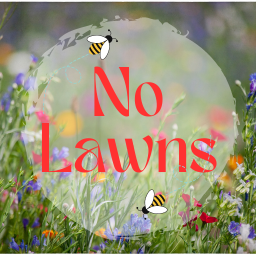

Guarantee that at some point he (or some Republican idiot) suggests we engage in more trade with Russia and India.


Guarantee that at some point he (or some Republican idiot) suggests we engage in more trade with Russia and India.


That seems low to me.


You see this a lot in project management. People go to school to learn to manage projects, and they think that all projects are pretty much the same. You define the deliverables, set the schedule, track the progress, and everything should work out fine. When the project is a success, they pat themselves on the back for getting everyone to the finish line, and when the project fails they examine where in the process unexpected things happened.
Video games are an art form. Creativity can’t be iterated into existence, and the spark of fun is more than the component parts of a good time. Capitalists believe that they can invest in the creative process and buy the value of the talent of extraordinary people. They have commoditized creation, dissecting each step and then squeezing it into a format that fits into a procedure.
Here’s a Kanban board of game features, pick one and move it to the next phase. Develop, test, evaluate, repeat. What are your blockers? Is this in scope? Do we need to push the deadline?
That can help you make something, but it won’t be art.


The flowers in the image are pollinated by bugs and birds. Their pollen is not what you’re sneezing at. More likely it’s tree pollen or ragweed, which grows in competition with these wildflowers. Doing this might actually reduce your seasonal allergies.


You probably have ticks in your yard anyway. They can make their nests in the grass.


Have you checked to make sure that the universe is not a hyper realistic simulation and you are every person in it?


Much more accurate than guessing is not a strong endorsement.


They are, for better or worse. Kids learn to be people from the people around them. The only situation where your parents aren’t role models is when they aren’t around you, and that’s a sort of role model in its own way.
Kids also learn from their peers, their mentors, their heroes, etc, so it’s not like kids of shitty people are completely fucked.


Watching the Brak Show feels like smoking weed to me, but I’m completely sober. Except for when I’m high.


While you are correct, the only people using “woke” anymore are using it as an insult, meaning “not a bigot like me.”


It’s hard to put yourself in the headspace of someone who believed in Donald Trump, and it’s always surprising what each person’s “last straw” was. Like, now that he hurt my business with tariffs, he’s suddenly a horrible person. As though he wasn’t a felon, a rapist, a bigot, a racist, a misogynist, a pedophile, a despot, an incestuous, traitorous, egomaniacal, lecherous, kleptocratic, lying sack of shit yesterday, but today he’s gone too far.


Just checked for local restaurants, and sure enough there’s a few in my area. I haven’t eaten at any of them, but now I know not to.


That’s not even fraud. There’s nothing unethical about it.
I ask for summaries and examples for things I understand well but struggle to explain. Sometimes it’s very helpful, and sometimes it’s just deranged nonsense.
That’s why I’m less likely to ask it to about something I don’t already know. How would I know if the answer is accurate or coherent? At least with something like Wikipedia, I can track down a source and look for foundational truth, even if it is hidden under layers of bias.


That’s exactly my point, those people are never challenged on their beliefs. Joe Biden won the Florida primary by telling voters that Bernie couldn’t win as a socialist. Biden then lost Florida in the national election because Trump painted him as a socialist anyway, and Biden was like “nuh-uh.”
You can’t win elections playing defense against irrationality.


It didn’t work for me. Why not?
I’m going to pronounce it “agilé” at the next stand up and see who corrects me.


And proof of citizenship is undue burden that violates your constitutional rights.
It’s one thing to know it happens, and it’s an entirely different thing to hear it happening live and in real time.
It’s because 3d chess is a sci-fi trope. There are a few versions, but it probably became most famous from the Star Trek version. 3d chess is ostensibly more complex, although the precise rules are usually not described in fiction, and the people who are very good at 3d chess are demonstrated to be extremely smart and tactical. Having a sci-fi character win at 3d chess is itself a trope to demonstrate that the character is a genius. In those examples, often the opponent will be overconfident and derisive of the character’s strategy, only to be humbled by the loss moments later. It’s a way to showing the character is cool headed, gracious in victory, and leagues ahead of his opponents.
The 4d chess meme was an escalation of a sarcastic exaggerations of the trope, like a way of saying a moron is just doing something obviously stupid is really enacting a super-strategy that you just don’t understand.